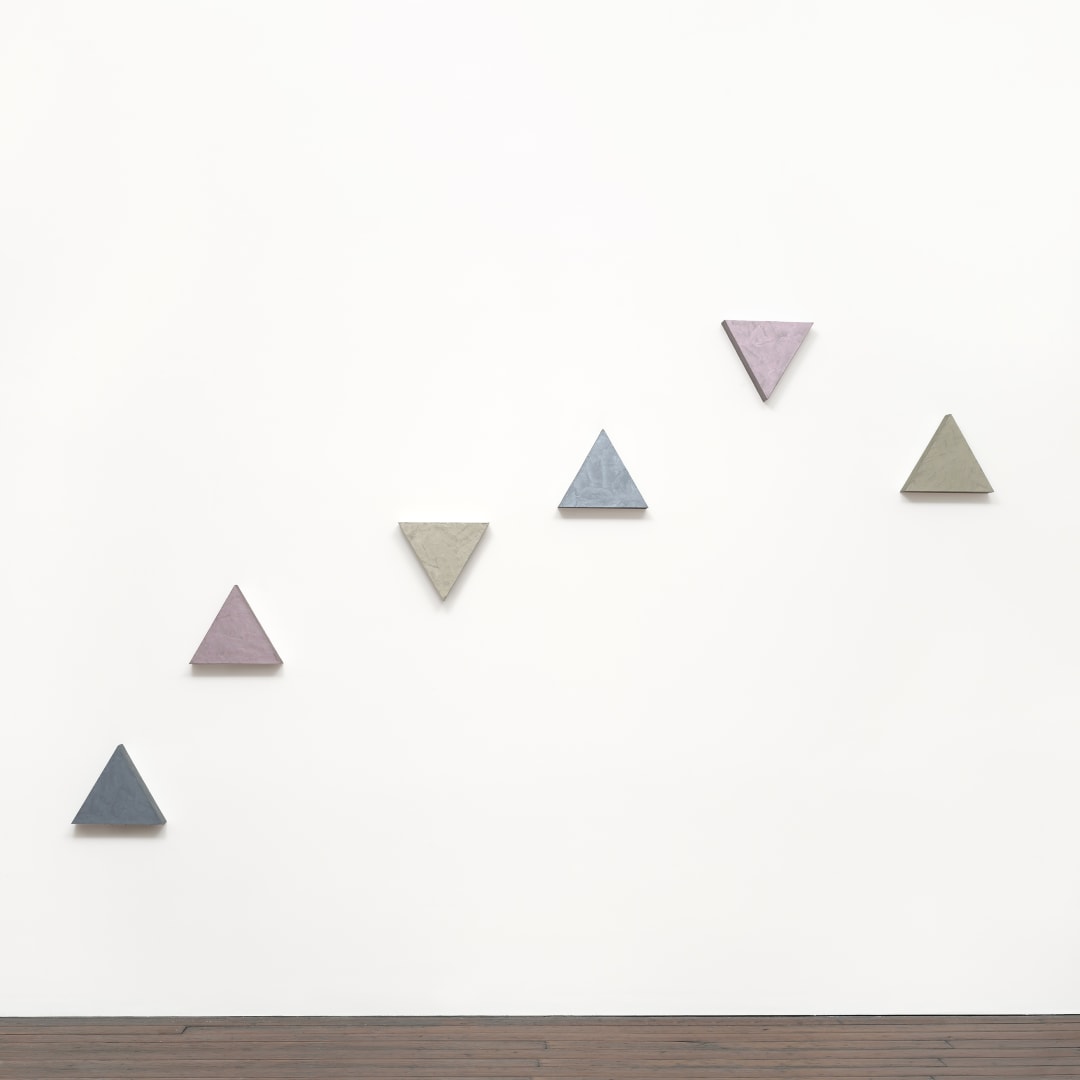Born in 1932 in Nagoya, Japan, Tadaaki Kuwayama graduated from the Japanese Painting course at Tokyo University of the Arts where he found himself uninterested in both the rigid traditional nihonga apprentice system as well as the contemporary Japanese art scene in Japan of the time. He moved to New York in 1958, along with his young wife, the painter Rakuko Naito, where they have been living and working ever since. After his 1961 solo exhibition at Green Gallery, the prominent vanguard gallery run by eccentric art dealer Richard Bellamy, Kuwayama began making monochromatic acrylic paintings in geometric forms, becoming a pioneer of what became known as the American Minimalist movement of the 1960s and 1970s. The artist turned his back on the abstract, and gesture based painting style of the era, beginning to pursue another style of “pure abstract” painting alongside other young artists of his generation. Donald Judd, then an art critic, was an early advocate of Kuwayama and followed his career noting his contribution to the emerging form of what would later be termed Minimalism.
Kuwayama’s oeuvre can be understood as spanning several periods, marked in part by his use of different materials. Until 1962, when he had his second solo exhibition in the United States, he produced paintings using Japanese mineral pigments and acrylic solvent on boards wrapped in Japanese paper. After that, the artist used acrylic paint until around 1969; then he turned to metallic paints through the 1970s; and oil in the 1980s. But since the 1990s, Kuwayama has made space itself his work. His globally acclaimed works display no subjective expression—they are intended as pure art and provide an immersive experience in the viewing space.
